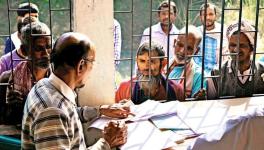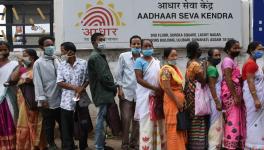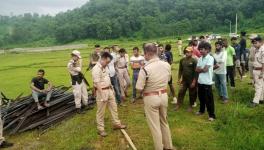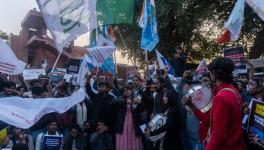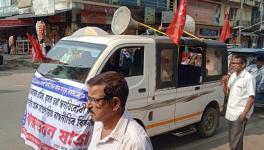Hate Unlimited in Times of Sectarian Nationalism

Representational image. | Image Courtesy: Pixabay
The recent police firing at protesters in the Sipajhar area in the Darrang district of Assam is a wake-up call for all who value humanism and fraternity. The images that have alarmed the country the most are of a photographer, Bijoy Baniya, trampling the dying Maynal Haque, 27, shot in the chest by Assam Police during an eviction drive. The other victim of police firing is 12-year-old Sheikh Farid from Dholpur-3 village, also in Darrang. This incident shows us the stern visage our society has adopted today.
Initially, nobody resisted the eviction drive the Assam government started. During the second round, when the demolition allegedly included setting afire the meagre possessions of poor residents, people resisted. That is when violence broke out. The protests and clashes occurred at Dholpur Gorukhuti village and left many, including nine police officers, injured and two dead. Haque is seen in a purported video of the incident, chasing a police officer, stick in hand. The police are visible, too, shooting at people from behind some foliage.
The government has predictably blamed the Popular Front of India (PFI) for the violence. It denied the charge of locals that they did not get adequate notice before the “drive” began. And it has launched legal proceedings against Baniya. But here came the discriminatory attitude of the police, for how could scores of them fail to control one stick-wielding man? There was a large police contingent at the spot. Could it not find any alternative to firing? Shooting must be a desperate last measure, but here an armed police resorted to it against a man equipped with just a stick!
The incident occurred as the state government, led by BJP’s Himanta Biswa Sarma, ordered evictions in an area where people had lived for decades. Peace and human rights activist Harsh Mander wrote recently, “Almost immediately after assuming office...Sarma announced the resolve of his government to remove these ‘encroachments’. He has not explained why only the settlements populated largely by Muslims of Bengali origin were chosen for demolition.” This is a question that will haunt India for a long time. The government decided to evict the current residents and settle “natives” there. Most of the families in the area selected are already those who get displaced by riverine erosion, not to mention sporadic violence. Recall the violence during Assam agitation, which continually targeted this demographic.
Bengali-speaking Muslims have been painted as foreigners by the communal party in power, overlooking their long history in the region, which started with the British plantation drives in the vast empty tracts of Assam. Today, state policy shows an extreme disregard for these Muslims. The National Register of Citizens (NRC) exercise was undertaken on Supreme Court supervision but the state authorities constantly invited the charge of community bias. The NRC left 19.5 lakh residents deprived of their citizenship rights in Assam and put its poorest through tremendous hardship. After it concluded, some claimed that around 12 lakh of those who ended up as hapless non-citizens were Hindus, and that seems to have prompted the government to rethink the entire NRC process.
Human rights groups such as Citizens for Justice and Peace have been working in Assam to help people—of all faiths—overcome the hardships created by the complex process of proving citizenship. Human rights watchers say the Bengali-speaking minorities are the most vulnerable as they get dubbed “Bangladeshi” or “foreigner”, a perception the ruling regime has further entrenched.
When prejudices rule and the marginalised get systematically projected as enemies, where is the space to talk about Shaikh? He was reportedly returning from a post office with his Aadhaar card when he got caught in the violence. Did it require a bullet to bring him under “control”? The police are trained to control crimes, not attack innocents. This training has got a go-by, or something is very wrong with how the force operates in Assam. Many police commissions have said reforms are long overdue to make the police forces more sensitive all over India, even as prejudices overcome all humane sentiments. This kind of bias made the forces behave the way they did in Assam.
The government is supposed to be the guardian of the people. People who have lived in an area for decades, who make a living growing minor crops or performing petty trades and jobs, have been turned into permanent victims. First, they suffer from the vagaries of nature, and then they are targeted by officialdom. The Brahmaputra is the principle river in the Darrang district, and as it changes course, it forces its children of lesser gods to seek shelter in new areas. It is not that the earlier governments were sensitive to the needs of the marginalised, but with sectarian nationalists in power, the insensitivity towards the poor is on full display.
The young photographer, Baniya, was there to document the eviction drive on behalf of the police. His behaviour is not his alone—he reflects just how deep hatred has percolated into Indian society. To attack a dying man smacks of inhumanity. Here is a product of the hate and prejudice in which a large section of the corporate media, social media and the infamous IT Cell specialise. All these forces specialise in spreading lies, fake news, doctoring pictures, and constantly and selectively presenting minorities in a negative light.
The photographs and videos from the eviction drive in Assam make the depth of the hate sentiment encouraged in recent years quite clear. What started with lynching over transporting milch cattle or love jihad has percolated into every stream of life in India. The events in Assam shame our glorious tradition of pluralism, diversity, and acceptance and celebration of the other.
The author is a social activist and commentator. The views are personal.
Get the latest reports & analysis with people's perspective on Protests, movements & deep analytical videos, discussions of the current affairs in your Telegram app. Subscribe to NewsClick's Telegram channel & get Real-Time updates on stories, as they get published on our website.











